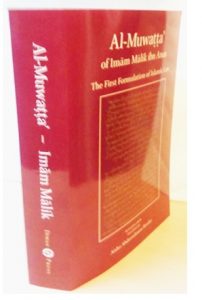Letters to the Editor
Q. How can Islam tackle the problems of unemployment, corruption, population growth?
Sameer,
Hyderabad
YMD
Maybe our reading is wrong, but the style of the question suggests that Islam is understood as a political system and its message as equivalent of a political party’s election manifesto, so that: “If  the promises are good, we vote for the party, otherwise we look for another.” Islam is rather there to guide us through our lives: something no individual, no organization, and no other religion can offer us.
the promises are good, we vote for the party, otherwise we look for another.” Islam is rather there to guide us through our lives: something no individual, no organization, and no other religion can offer us.
Allah’s kindness has seen to it that enough should be there for all. However, human greed, corruption, and refusal to bind themselves to any rules, creates a plethora of problems. Such problems should of course be solved by their creators themselves, that is, the humans. On its part Islam sees to it that such problems, e.g. that of unemployment, do not appear at all.
Q. Kindly answer my questions. Is Haj permitted without a beard?
YMD
Yes, it is.
Q. After Maghrib our Imam reads Ahadith. I like to listen sitting with my back towards the Qibla taking the support of the wall. I was told it is not permitted. Kindly clear my doubt.
YMD
The sitting posture is of little significance, if the heart and mind are not present, and the intention is not right. A tired person might require a support for his back. Another, fresh, might not. An unsupported person, sitting tight might have his thoughts elsewhere, while another, physically relaxed maybe all-attentive with the mind and soul in complete concentration.
Yet, to be “there” is the most important thing. Other things follow, provided the choice of the material being presented is right. A mere repetitive affair, where, the decorum is more important than the message, done more for formal purposes than moral, spiritual, or even educational reasons, less for the inner soul’s satisfaction, more for reasons of fulfilling a requirement, will be equally rewarding to the relaxed as well as the rigid of body: no profit no loss.
Q. What is the minimum distance to be kept while passing before a person in his Prayers?
Mastan Guard (Rtd.),
Hubli, Karnataka
YMD
In view of the strict prohibitions in the hadith against crossing a person in Prayers, the Hanafiyyah suggest that at least three row space may be left in between him and a passer-by.
Q. This has reference to the question of brother Younus Hasan Khan regarding the major signs of the Day of Judgement (April issue of 2002).
In your answer you have mentioned about the appearance of Dajjal. To me Dajjal has already appeared in the form of the USA. It is believed that Dajjal will have only one eye on the forehead. To support this, I request you to obtain one dollar note and see carefully that there is only one eye on it.
YMD
You should have sent us the $1 bill as reward for looking into it.
Q. Muslim nations have started believing in the USA and disbelieving in the Almighty, the only one God.
YMD
We hope not. We believe the phase in which they believed USA as God is behind us. They now believe it is the Devil. At present they are saying: “I seek Allah’s refuge from Satan the accursed”. Hopefully, in the next phase, they will do something to ward off the evil of the Devil. But, if, as you say, they are beginning to take it as God, then, we have several generations to go before our leaders realize their error.
Q. Oppression by the USA is on the rise. When this world will be filled with oppression, then it is that we will see the appearance of Imam Mahdi, the great grandson of the Prophet.
Salman,
Address Withheld
YMD
When Imam Mahdi arrives, he will do his duty. At the moment, we have to do ours.
 Q. How can Islam tackle the problems of corruption, and population growth?
Q. How can Islam tackle the problems of corruption, and population growth?
YMD
Islam solves the problem of corruption in one minute. As soon as a man declares himself a Muslim, Islam demands that he offer Prayers five times a day, without which his Islam is unacceptable. Then, as one prepares himself to offer the Prayers, he is told that if he has an ounce of blood in him earned through unlawful means, his Prayers are not accepted. He must earn his bread through lawful means.
So, he is not a Muslim without Prayers, and his Prayers are not accepted unless his earning is lawful. Thus, the problem of economic corruption is solved by Islam in one minute.
As regards population control, kindly wait for an editorial to appear on the topic soon, Allah willing.
Q. As you also write on other religions comparing with Islam, please write on the laws in Hinduism as to which of them are impractical, or due to which society will be unbalanced?
YMD
It is difficult to compare Islamic laws with those of other religions. That is because Islamic law controls every facet of human life and, hence, not only a society but a whole nation can be built following Islamic laws. Large populations of several countries such as Afghanistan, the Gulf, or Malaysia, live entirely by Islamic laws without borrowing anything from outside. In a few countries, courts rule by Islamic laws.
Since no such system of comprehensive laws exists apart from that of Islam, any comparison will have to be of only parts and not the whole. Now, since parts are to be explained in terms of the whole, a proper explanation will not be possible.
Further, the laws of other religions have been criticized by the followers of those religions themselves. Criticism or comparison by others, then, is uncalled for, especially in an atmosphere where the majority of people are not ready to discuss any religious issue openly.
Q. How can you prove that God has revealed only the Qur’an?
Sameer,
Hyderabad
YMD
We do not say that Allah revealed only the Qur’an. The Qur’an itself states that Torah, Zabur and  Gospels are His revelations. But if you mean how we can prove that the Qur’an is a revelation, then the answer is that the fact of it having undergone no change since it revelation 1400 years ago, with no other example before us, is a strong evidence of its revelational nature.
Gospels are His revelations. But if you mean how we can prove that the Qur’an is a revelation, then the answer is that the fact of it having undergone no change since it revelation 1400 years ago, with no other example before us, is a strong evidence of its revelational nature.
Further, despite being such an old book, it remains entirely meaningful today, capable of guiding the humans to a peaceful life. This is another evidence that it is from Allah.
For a more detailed discussion, please see some books on Islam.
Q. Is it necessary for a Muslim to follow any one of the four Imams? Or should we just follow all the authentic ahadith? I ask that because sometimes these Imams (may Allah have mercy upon them) contradict the authentic reports of our Prophet (saws).
YMD
Firstly, you must be aware that you do not follow an Imam. Nobody does it. No one has ever followed Imam Shafe‘i, or Ahmed ibn Hanbal, or others. Far from common people, even for scholars it will be difficult to follow the opinions of any one of the four Imams. But rather, the people follow one of the four schools of which the foundation were laid by the said Imam. For example, Hanafis do not follow the opinions of Imam Abu Haneefah. They follow the opinions of the Hanafi school of thought. So also, the Hanbalis follow the Hanbali Madh-hab. It is not Imam Ahmed b. Hanbal that they follow. The famous work, Al-Mughni, e.g., was not written by Imam Ahmed b. Hanbal.
That applies to all Madh-habs. This is because the particular school of thought took a long time to mature after its foundations were laid by the Imam of that school. During that period of maturity, which lasted a couple of centuries, several renowned scholars made their contributions to the school, individually and collectively. For, primarily, what the Imam (and his colleagues) had initially done was to lay the intellectual basis and provide the working principles.
 Those who followed them, down to this day, do it for one of the two reasons: either they are of the common folks and cannot work out Shari‘ah law on their own, such of them have no choice but to follow an Imam’s school; or the followers are scholars who agree with the principles of the school. If they do not, then of course, since they have the intellectual capability, they switch over from one to another school.
Those who followed them, down to this day, do it for one of the two reasons: either they are of the common folks and cannot work out Shari‘ah law on their own, such of them have no choice but to follow an Imam’s school; or the followers are scholars who agree with the principles of the school. If they do not, then of course, since they have the intellectual capability, they switch over from one to another school.
There have been therefore, although not many, but occasional cases of scholars switching schools because they found that the principles of the new school matched better with their own understanding of the Islamic Law. They had, then intellectual grounds, and gave intellectual reasons for their preferences.
In rare cases, if a scholar reaches the status of Ijtihad then he is not bound to follow any Madh-hab. He can, in fact, start off his own Madh-hab, which the common people are free to follow or not to follow.
It is also incorrect to say that the Imams, or anyone of them, ignored a hadith, or was unaware of it, because of which his ruling is now incorrect. To make such an allegation, one firstly needs to establish whether the reference is to the ruling of the school of thought, or is it, to the Imam’s ruling, since, as we know, most people are confused or misinformed over the issue and so, fasten an opinion to an Imam while it might be the opinion of the school of Law or vice versa.
In either case, one needs to, in the next step, establish that if there is a hadith which contradicts the opinion of the Imam or the school. Thereafter, the following have to be established: (a) Is the hadith, which seems to contradict, complete or is it part of a long report? (b) What is the established meaning of the hadith? Is it understood by the scholars in the same sense, as an ordinary person understands it, especially if the person does not know Arabic, and depends on translations? (c) Are there other ahadith on the topic at hand but giving out a different sense? (d) Is there any contradiction in the meaning of the hadith with any established source text? (e) If it is a hadith with a single source, then was the reporter’s own practice reported, and if so, does it reconcile with his report?
The above are a few points. There are several other issues involved before it can be judged if any of the Fuqaha or their followers ruled against a hadith. But, for the common folk, it is best not to go into the exercise, because they lack the tools for it and the knowledge. It is like high school boys questioning Quantum theory’s rightness or wrongness. If they wish to do that, they should do graduation, then masters, and finish with a Ph.D., to be able to attempt a meaningful criticism.
Q. Can you please give me the correct order of the major signs of the Day of Judgement?
Younus Hasan Khan,
Hyderabad
YMD
The major signs of the closeness of the Hour are ten. But there is no agreement among the scholars over the order because the ahadith do not mention them in any specific order. The following order is conjectural: (1) The Smoke, (2) Dajjal, (3) ‘Isa ibn Maryam (asws), (4) Yajuj and Majuj, (5) Sunrise from the West, (6) The Animal that will speak to the people, (7) Earth-sinking in the West, (8) Earth-sinking in the East, (9) Earth-sinking in the Arab world, and (10) A fire that will start from Yemen and drive the people to the Field of Reckoning. Some have placed the three sinkings at the beginning. Allah knows best.
Q. Please answer my questions in the light of Qur’an and Hadith. Usually after Asr and Fajr prayers the Imams sit with their face towards the followers. Why?
YMD
This is half way of doing what the Prophet used to do. After every Prayer he would turn to the followers and sit for a while facing them, while he and they all did Dhikr. Perhaps he waited for someone to ask a question. Sometimes he himself inquired if anybody had seen a good dream. Then, after a few moments, he left. Most of his Companions also left to offer their Sunnah/ Nafil prayers at home.
The Hanafiyy opinion is that, one may go into Dhikr after the Fard Prayers, provided the Dhikr does not lead to not doing the Sunnah/ Nafil Prayers. However, experience showed that once the people sat down in Dhikr– immediately after the Fard Prayers – then such sitting lengthened and ultimately they left without offering the Sunnah/ Nafil which they didn’t do at home also. Therefore, the Hanafiyy Imam now turns and sits doing Dhikr after ‘Asr and Fajr Prayers, at which time there is no prescribed Sunnah/ Nafil prayers, but not after the other three Prayers of the day, allowing the followers to start their prescribed Sunnah/ Nafil prayers.
Q. Why do the Imams sit between the Khutba of Friday and Eid prayers?
YMD
This is the way of the Prophet.
Q. Why do the people change their places to offer Sunnah/ Nafil Prayers?
Mirza Arzoo Baig, B.Sc,
Sitamarhi, Bihar
YMD
We are not too sure of the origin of the practice. As stated above, at the time of the Prophet, most Companions did not offer their Sunnah/ Nafil prayers at the mosque. They did them at home so we can’t say the practice you have asked about is their practice.
However, there could be one reason, as some scholars have said, that the people are moved by the reports that the earth will bear witness of so and so Praying on it on such and such a day. So, presumably people change position in hope that several spots of earth will bear witness of their Prayers. Allah knows best.

